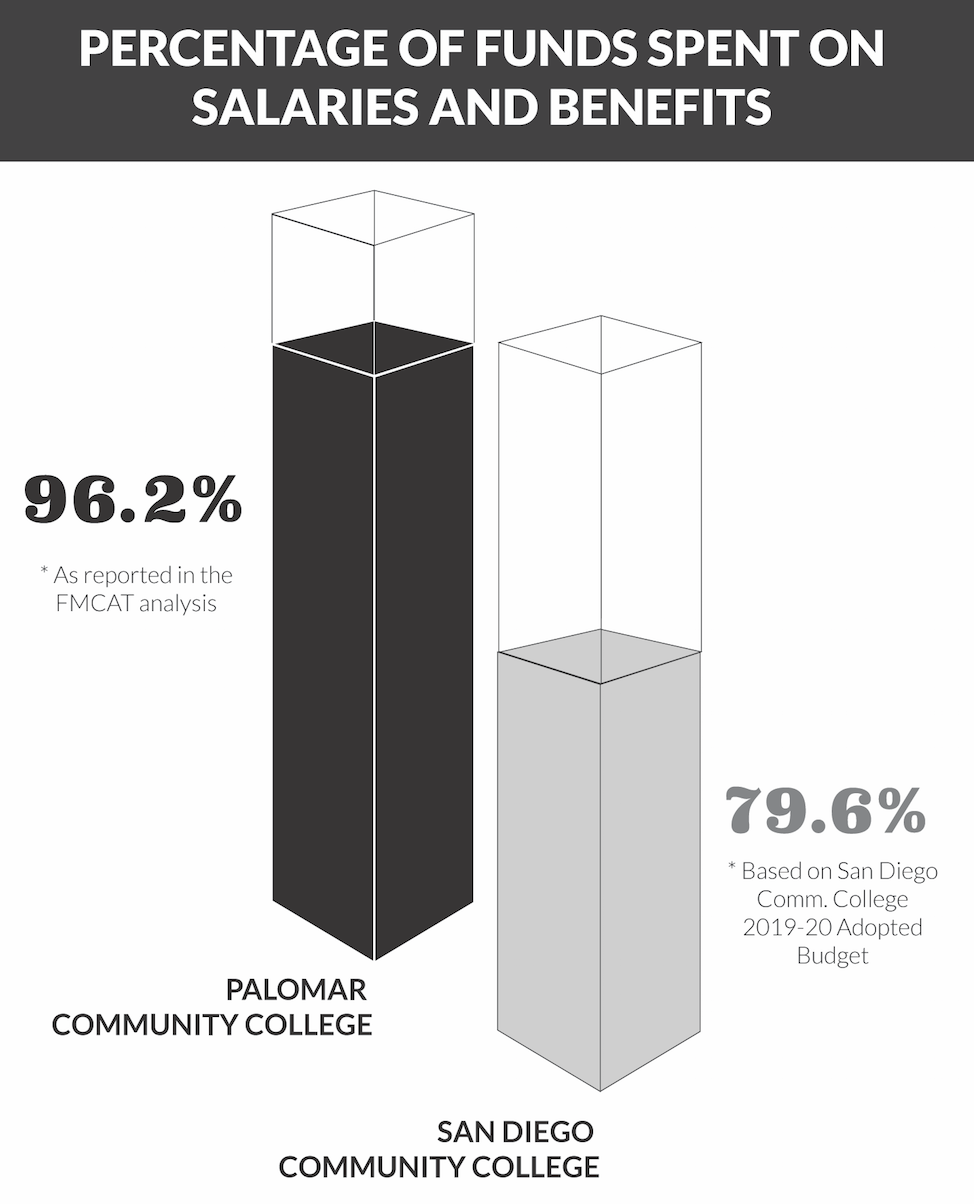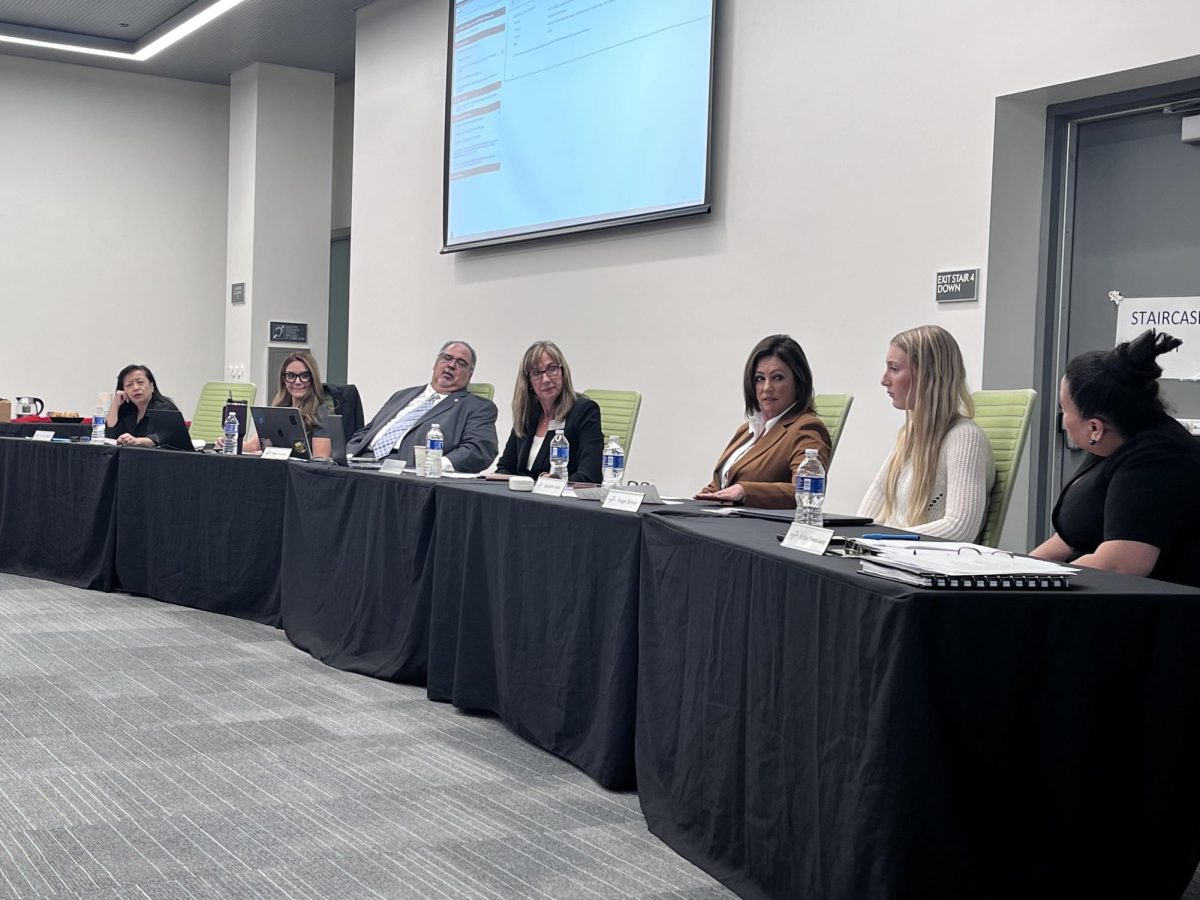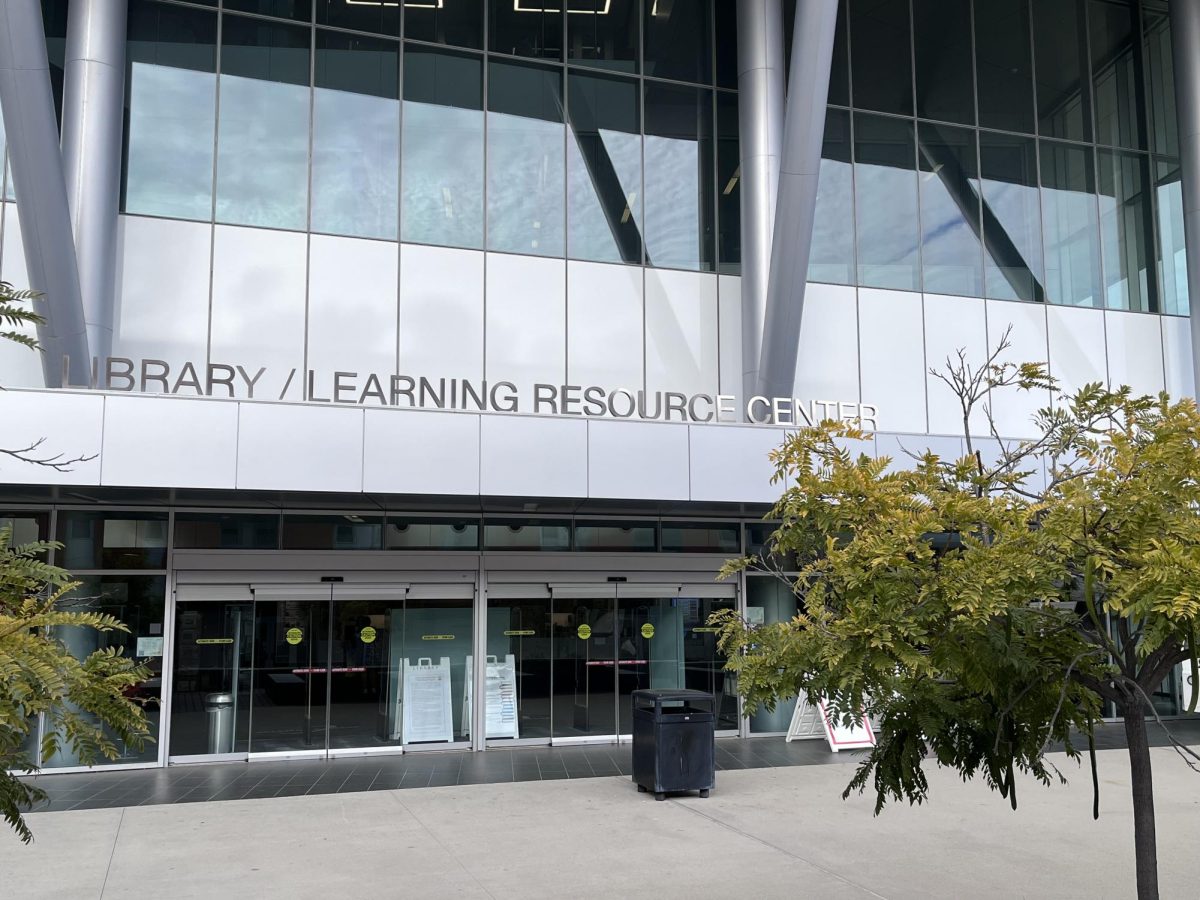Story by Ana Acosta and Summer Aguirre
The Palomar district is in a $12 million deficit and nearing fiscal insolvency, as revealed through a recent risk analysis report.
The Fiscal Crisis and Management Assistance Team (FMCAT), a state entity that provides financial assistance and services to local educational agencies, was enlisted by Palomar to analyze the district’s fiscal health and presented the report at the meeting.
“The clock is ticking, and that’s what I really hope to get across to you tonight,” said Michelle Giacomini, a FCMAT analyst that presented the report at the Nov. 12 Governing Board meeting.

Institutions that receive over 40 percent on the fiscal health risk analysis are considered to be at a high risk of insolvency in the near future, according to the report.
The Palomar district received a 44.5 percent ranking.
The areas on the analysis that had ‘no’ answers revealed specific areas where deficit spending was found.
These sections included deficit spending, enrollment and attendance, and multi year projections.
Palomar’s ranking was determined by 127 yes-or-no questions that assessed the risk of insolvency. Numbers above 40 are considered bad, and Palomar received a “no” on 57 questions.
The report further showed that some departments at Palomar do not participate in budget development, that 400 CalCards which are mostly unreviewed before purchases are made, and that budget reports do not accurately show department funds.
“Although the district has begun reducing expenditures, it has no feasible plan in place to reduce and/or eliminate total estimated deficit spending,” the report said.
In the 2018-19 fiscal year, Palomar had a $1 million deficit. This deficit has increased to nearly $12 million, according to the report. The report suggested that in order to decrease this deficit, the 96.2 percent of the district’s funds that are spent on employee benefits and salaries should be decreased significantly for the district to remain fiscally solvent.
“In two years, the district will have consumed all reserves and will be forced to borrow $6.5 million from an external source to remain solvent,” the report summarized.
Giacomini provided recommendations on how the district can reach financial stability during the board meeting. She shared that the funds spent on employee salaries and benefits for their employees is significantly higher than other districts.

Nearly 96.2 percent of Palomar funds are spent on salaries and benefits, the report showed. Giacomini recommended that Palomar officials should decrease this number to 90 percent or lower to achieve financial stability.
For comparison, San Diego Community College spends 79.6 percent on salaries and benefits, according to their 2019-20 adopted budget.
If Palomar continues spending using current practices, these costs will consume 100 percent of the unrestricted general fund revenues in three years, the report suggested.
She also shared that Palomar’s current enrollment rates can no longer support the current budget, and that the District needs to seek long term financial programs.
“FCMAT encourages an intentional focus on long-term enrollment strategies such as implementing middle college high schools and other long-term goals,” the report said.
President/Superintendent Joi Lin Blake, who recently received a vote of no confidence from faculty and classified members, said that she is prepared to do whatever is necessary to prevent Palomar from fiscal insolvency.
“The board has directed me to stabilize the budget and the institution,” Blake said. “As I’ve shared on many occasions and on many forums, it’s not that I’m a hard person, or that my team’s a hard person, we’re just in a hard place.”
As a result of the current financial crisis, Palomar administrators initiated an employee hiring freeze.
Teresa Laughlin, Co-President of the Palomar Faculty Federation, responded to the report in an email to faculty members, saying that “everything that has to do with salaries and health benefits must be negotiated.”
Further, Laughlin wrote that because there is a hiring freeze for faculty members, then “we would like to see the administration lead by example.”
Laughlin shared that Palomar administrators can do so by not hiring administrative positions, including not hiring for the Instructional Dean position that was on the recent governing board agenda.
“Our biggest obstacle toward resolving this problem is the lack of trust and confidence in the leadership of the College,” Laughlin wrote. “It is crucial we stay engaged and united in this struggle.”
Board trustee Nina Deerfield also responded to the recommendation of cuts to salaries and employee benefits at the recent governing board meeting.
“I feel like cuts and fiscal responsibility should start at the top and not at the bottom, which is what it feels like we’re doing,” Deerfield said.
Deerfield received applause in response to her comment.
“It’s going to take time and planning and decision making and everybody working together,” Giacomini told board trustees and meeting attendees. “There are some really, really big decisions ahead.”

































































